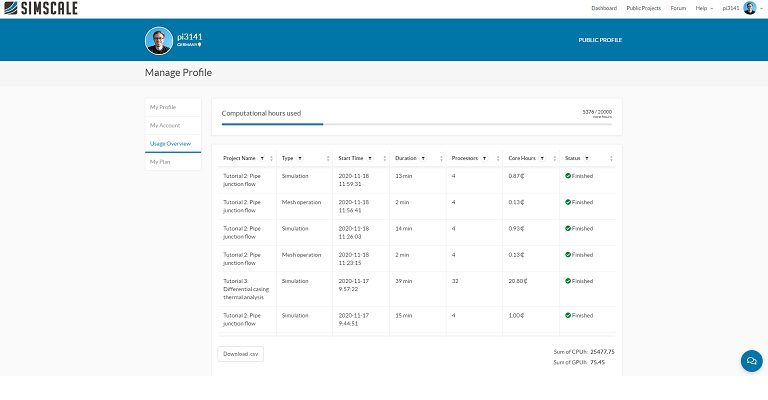We can’t see, hear or feel it, but the cloud has been radically changing and shaping our lives for the past thirty years. Roughly defined, cloud-based tools allows for on-demand access to a shared network of computing resources. This enables users to access information, applications, and data instantly and from almost anywhere, without shouldering the cost of running and maintaining servers or requiring the knowledge, time, and effort to select, source or install optimum hardware infrastructure.
Cloud-based tools are often accessible directly in a preferred web browser, and allow for multiple parties to collaborate on projects in real-time, achieving maximum efficiency with a minimum barrier to entry. This high-utility, minimal expertise quality puts cloud-computing at the forefront of meeting business needs and only continues to grow in popularity. Companies across a plethora of industries and of all sizes can capitalize on the benefits of the cloud. In fact, the ability for cloud-based tools to scale up or down with a firm’s fluctuating workforce or internal resources priorities is one of their strongest and most valuable assets.
As a cloud-based tool, SimScale offers these same benefits to its diverse range of users (over 200K, in fact). Engineers and designers from various industries, from construction to electronics, use SimScale to test, validate, and optimize their work. Easily accessible from any web browser and on almost any machine, SimScale allows multiple users to collaborate and seamlessly work on and share projects, streamlining the workflow, and improving efficiency. As a service model, users can scale their subscription plans to best fit their needs. Below, we expand on the ways in which SimScale, as the world’s first software as a service (SaaS) application for engineering simulation, encompasses the key advantages of a cloud solution.

Cloud-based Tools: Accessibility
Cloud-based tools have revolutionized the way we think of and use computer programs, with CAE being no different. Previously, simulating was inaccessible to many companies. It required a hefty upfront investment—not only the cost to acquire the hardware, but the space to house it, and the specialist to handle it. As a cloud-based application, however, SimScale has democratized simulation. It offloads demanding computation to remote servers meaning users need only their laptop and a web browser to get started. This eliminates the necessity for designers and engineers to be on-site in order to simulate, an important aspect to consider in a world in which working environments are growing increasingly remote. What’s more, on-premises simulation hardware runs a high risk of data loss in the case of physical damage. With SaaS, recovery solutions are baked in, as projects are securely kept in the cloud and can be quickly accessed and restored.
This paper addresses the difference between on-premises software and SaaS
solutions for computer-aided engineering, explaining how SaaS came to be and its
key benefits.
Cloud-based Tools: Efficiency
As an online application, SimScale drives increased efficiency for engineering teams. Not only do users have the flexibility to work from anywhere, but they can collaborate on shared projects, always working from the most recent iteration, in real-time, with teammates. This does away with outdated project workflows. Multiple steps and hand-offs are no longer required as engineers, designers, and architects can work together in shared dashboards to track progress and even kick off as many simulations in parallel as they wish, turbocharging the process of finding the optimum design. Users are no longer tied to a computer waiting for a simulation to finish. SimScale provides estimates for each run time, along with the number of core hours each simulation will incur. Another time-saving step? SimScale allows engineers to copy existing boundary conditions from a simulation and transpose them onto a new simulation of the same CAD.
Cloud-based tools, unlike on-premises hardware, handle all maintenance and updates in the background, leaving users free to focus on their work. SimScale rolls out new features like clockwork. So, instead of paying maintenance fees for upgrades, users always have access to the latest version of the software. Additionally, live in-product support is highly streamlined. While professional work generated on SimScale will always remain private, cloud computing gives users the option to share their projects with our support engineers at the click of a button, who in turn provide highly-tailored guidance and the quickest, most efficient, route back to simulating and exporting run results.
Cloud-based Tools: Scalability
Perhaps one of the most compelling aspects of cloud-based tools is how easily users can scale their subscription plans based on their fluctuating business needs. Capacity, functionality, and in-app features can all be adapted to best meet evolving demands. While in-house simulation hardware limits engineers with its existing computing capabilities, SimScale users can upgrade to a professional or team license in a matter of minutes to start working with increased capacity and capabilities. Having a shared dashboard allows for teams to track each others’ progress, and creates a bridge of communication between users, which is essential in a world navigating more towards working from home environments. Drawing this increased computing power from SimScale’s remote servers frees up users’ machines for other tasks providing the kind of agility needed to keep teams engaged and competitive.

Unlocking the potential of a cloud solution has boosted productivity and innovation in a multitude of industries and across a wide variety of applications. Engineers, designers, and architects alike can harness this same power to increase efficiency, reduce cost, and accelerate time to market in their respective fields.
Cloud-based CAE offers teams, regardless of size or time zones, an on-demand, instant access tool to collaborate more quickly and efficiently. Scalable by nature, SimScale provides these benefits in a manner that evolves with its customers’ needs, keeping businesses lean while empowering them to test, validate, and iterate designs faster and more accurately than ever before. Check out our SimScale engineering solutions page, or sign up now to try our cloud-based tool today.

Additional Resources on Cloud-Based Benefits From SimScale:
- The Evolution of Engineering Teams and How They Stay Competitive
- Simulation in the Cloud: Tips for a Seamless Migration
- Cloud-Native Applications vs. Non-Native Cloud Offerings
- Cloud Migration in 2020: The New Digital Workplace



